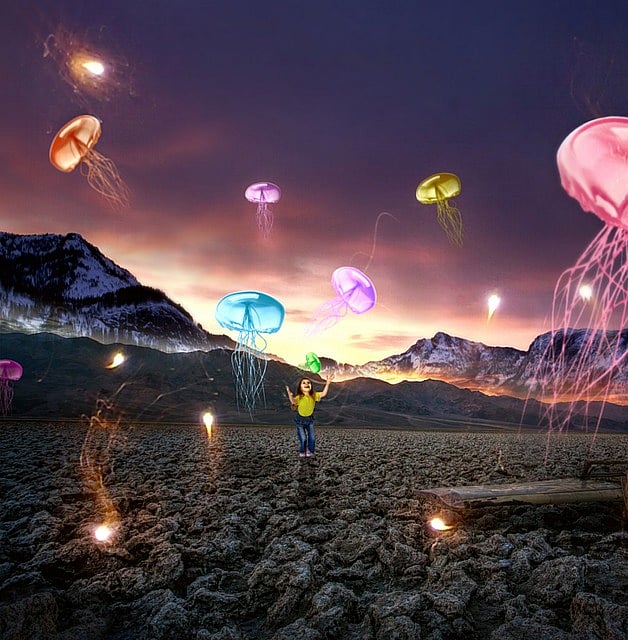The Unschooling Life: Only Connect

Representative Image | Pixabay
As a toddler, my son would clamber into my lap and ask to be read out to. My body was his spaceship, the thing that propelled him, in safety, into the universe of stories.
Now, my son, a four-year-old with a fierce thrust for independence, has no interest in my lap. But still, I can tell, my body remains vital. When I’m around, he knows a kind of quiet security, the sort that lets him approach a forest and gather puffballs, certain that no matter the shocks and surprises—forests are known to be unpredictable—he will be okay.
This is how he explores and learns. In certainty.
We speak of learning in so many ways, as memorisation and practice and absorption. But in truth, learning is all about connection. Detach the two, and there’s only this—raw fear.
I write this while picturing what has turned into a first-day-at-school trope—a little boy sobbing by a classroom door. Remember: he has been parted from his primary and secondary caregivers. He has been thrust into a space denied parental touch. The adults who approach him are strangers.
What happens at such times—in these hours of being severed from everything intimate? The brain—the miracle brain—otherwise known to nail down executive functioning, becomes almost reptilian, conserving energy for bare-bones survival, for flight or fight or freeze. When survival becomes the only instinct (as it does for a child separated from his village)—in other words, when the limbic system of the brain takes over and stalls higher-level cognition—no learning can happen. It is a neurological impossibility.
This is why the very expectation that a child can and should learn among qualified strangers is flawed. To learn he must feel attached. And attachment is a process; it demands time and nurturance and cultivation.
A few months ago, when my son and I explored the possibility of enrolling in a children’s art class, I was (sternly) told that parents weren’t welcome; that their presence interfered with a child’s capacity to engage. The assumption was that an inanimate setup—chalk and paper and ink—and a little-known tutor were more essential to artistic attainment than a caregiver’s loving presence; that, in fact, the caregiver was the variable that threatened to disrupt the assembly of strangers.
Here’s what the art class happened to miss—a psychological truth—that the first, most essential, rung on the learning ladder is attachment. And it’s when a child feels emotionally secure that learning becomes an inevitability.
Which is why, when I attended unschooling veteran Dola Dasgupta’s enlightening and deeply empathetic home education workshop, I was reminded that my job as a parent was not to worry over the puzzle that was knowledge-gathering. My job was to keep connection alive. For, if connection stayed intact, all else—curiosity and wonder and the steadfast pursuit of every why—would fall in line.
Each day, my son and I connect. We connect when I follow him as he cycles. We connect, after ruptures, on the ‘chat sofa’. We connect when we read and travel and paint.
We connect as the puffballs open out and scatter skyward.
In truth, we don’t know they’re puffballs. But there’s Google Lens, and PlantNet, and a world of information at one’s fingertips.
‘Did you know,’ I tell my boy, reading off the internet, ‘that a big specimen of the giant puffball can be almost two feet long?’
‘Longer than a garbage truck?’ he asks.
‘Let’s find out.’
This is how we learn, my boy and I. Together.
Dharini Bhaskar is the author of These, Our Bodies, Possessed by Light. She is working on her next novel and can be reached at dharini.b@gmail.com
Published on: Friday, February 17, 2023, 11:52 AM ISTRECENT STORIES
-
-
-
-
-
